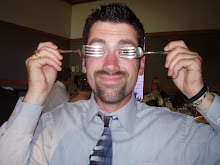 Let earth her song begin:
Let earth her song begin:Let the round world keep triumph, And all that is therein;
Invisible and visible, Their notes let all things blend,
For Christ the Lord is risen, Our joy that hath no end.
- St. John of Damascus
Everything that happened before Christ's Resurrection, including the whole Old Testament, was a precursor to Easter morning. Everything that's happened since can only be viewed in light of that moment.
Everything that we do as Christians leads us to Easter morning, and everything we do afterward is in response to the Resurrection.
We are an Easter people!
In the story of the Resurrection from Mark's Gospel, the women who loved Jesus show up on Easter morning to perform the traditional Jewish anointing rites for a dead body. They loved Jesus, and they deal with their grief by focusing on concrete, practical jobs as many of us do. What they don't realize is that while they're looking for a dead body, the Jesus that they love is risen and very alive. The women were "amazed" and probably a bit afraid; they could have never imagined this to be possible.
Mark assures us on this most important day of the year that if our Jesus is anything, he's certainly NOT predictable and static. Christ is rarely right where we left him. Instead, he is constantly "going before you to Galilee; there you will see him." This Easter, may we leave behind the tombs of our own sin and safety and look for the exciting, vivid, living Christ in new and beautiful places.
Peace, y'all. Happy Resurrection!
PM
P.S. Speaking of the importance of the Resurrection, the truth of the Resurrection has gripped even the literary greats throughout history; suffering, death and Resurrection drive many of the great stories throughout the past 2000 years. Including Ayn Rand's Atlas Shrugged, I might add! (*Spoiler Alert*) For all of her ceaseless criticism of Christianity, her hero, John Galt, rises from his own version of a tomb - a torture chamber. Rand unwittingly uses the truth of Easter in her attempt to deny it. For more, here's the blog on Atlas's economic failures.
P.P.S. How was your Easter? What'd you do to celebrate? Open for comments...
----------------
Now playing: Eric Hutchinson - Outside Villanova
via FoxyTunes




2 comments:
After reading "Atlas Shrugged" for the 4th or 5th time...I fail to see what you are referring to. Please be more explicit.
[MEGA spoiler alert!]
In Part 3, Chapter 9 of Atlas Shrugged entitled "The Generator," Rand's United States and world are finally breaking down. The great egoistic workers of the nation have retreated to an uber-capitalistic commune in Colorado, leaving the "looters" to their own demise.
After John Galt is captured by Mr. Thompson & co., they use various strategies to force him into ruling the nation and returning it to prosperity. Their final effort is taking him to a state-created torture device deep within a dark, stone building and hidden from all outsiders - Rand's version of a tomb. And Galt goes silently; without trying, Rand hits on Isaiah 53:7: "He was led as a lamb to the slaughter, and as a sheep before its shearers is silent, so He opened not His mouth."
Dagny Taggart, Francisco d'Anconia and Howard Roark all but give up Galt for dead, and hopelessness starts to slip into their consciousness. Their "messiah" has failed to save them. But in a valiant (and violent) rescue, they save the near-dead Galt and give him a new opportunity - his resurrection from the dead.
While Rand's take on "death" and "life" is mostly backward, she still can't escape the progression of "suffer, die, rise" (even if the death is merely perceived).
Post a Comment